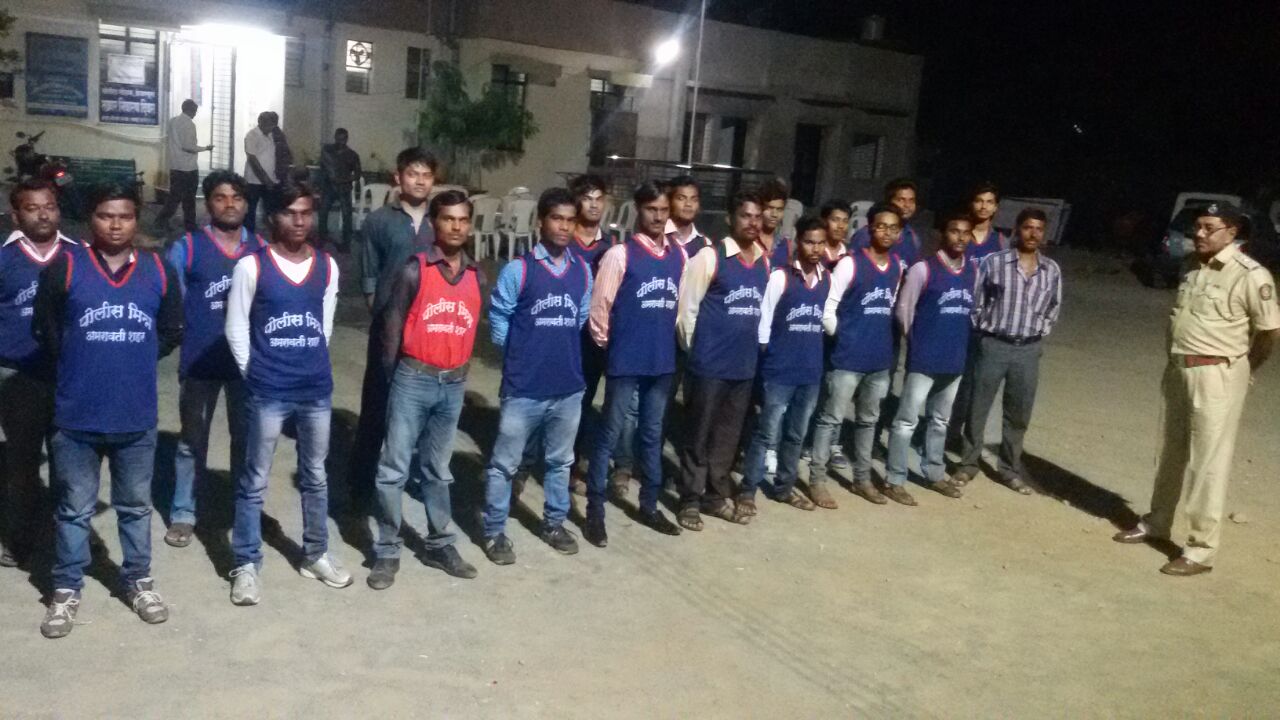Non Khaki Officers To Aid Police As 'Mitras'
AKRATI BHATI

NEW DELHI: For most people in India, particularly in Delhi, their interactions with the police ranges from being non-existent to downright frightful.
The relationship between citizens and their khaki friends has often been a cause of concern. However, in an effort to bridge the gap between police and the citizens, Prime Minister Narendra Modi put forth the idea of appointing 'non khaki ' officers as ' police mitras'
Enrolled under the recent scheme, these civilian ' Mitras', will assist in prevention and detection of crime, maintenance of law and order and communal harmony. A total of 284 people, including 49 women, have been enrolled under the scheme.
"The selection channel of these civilian officers is majorly reliant on 'Beat Officers', who keep an eye on the area assigned, and propose the name of prominent members of the area with good social record," explained Mohd. Yasin Sub-Inspecter & Reader, Jamia Nagar Police Station.
These Special Police ‘Mitras' belong to various backgrounds, consisting of farmers, homemakers, social workers, retired officials etc.
Conscious of the fact that Delhi had a similar provision for Special Police Officers (SPOs) earlier -- which was later discarded after accusations of corruption and domineering poured in -- the major question that arises is, why has the need for such a scheme emerged in the national capital?
"There is no profession in today's time which has all pros or all cons. The initiative has emerged with a vision to bridge gap and administer efficiently. However, the first analysis report of the scheme, will suggest if there are any unscrupulous activities or unrightful power exhibit by Mitras'," exclaimed Anand Yadav, Investigation Inspector, Jamia Nagar Police station.
These police mitras will be accorded with a certificate of appointment, special IDs and armbands and will be given preference as mentioned in Sec-17, of Delhi Police Act, 1978.
From giving 'thekri pehras', to keeping an eye on bungalows, guest houses on any suspicion and also keeping proximity with the police, these police Mitras are accorded with a range of duties and rights.
Another legitimate query that emerges is the protection of these police Mitras', who are duty bound to the police.
"There is equal risk in every profession and job. It has been 20 days, since I have been appointed as a police Mitra. However I have not confronted any menace or threat," said Sumbul Faheem, 28, Police Mitra, resident of Shaheen Bagh.
The police Mitras will also undergo an interactive session with the police before the discharge of their duties and will be rewarded with a 'certificate' in case of notable work.
"I have helped my community people with providing ambulance, keeping communal peace, school admissions and arranging several camps," said Rizwan Ahmed, a police mitra, retired government servant, and resident of Shaheen Bagh. He was recently awarded with a certificate from the police department.
The police mitra scheme now awaits its first survey report, which will conclude whether the scheme is consequential or whether it embodies fault lines such as corruption, moral policing, misused power play etc. That said, it is true that the successful application of the scheme will certainly bridge a big gap, specifically by instilling a sense of friendly trust in the system for citizens.



